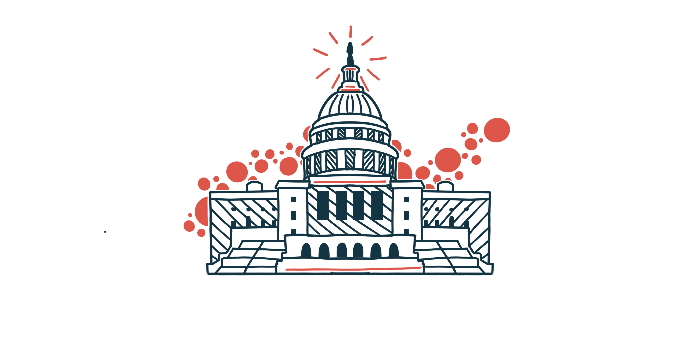Advocates lobby Congress about improving lupus care access
Supporters met with lawmakers to share stories, urge support for legislation

Hundreds of lupus supporters converged on Capitol Hill recently for the first time since 2019 to show their support for policies that would improve patient access to care, hear from lupus experts, and recognize those who’ve advocated for patients.
The National Lupus Advocacy Summit, presented April 23-25 by the nonprofit Lupus Foundation of America (LFA), is touted as the nation’s largest lupus advocacy event. In the last five years alone, it’s generated more than $684 million in federal research funding.
Along with the advocates who met with legislators, thousands more went online to share their stories and urge lawmakers to back legislation the LFA said would enhance the availability of top-shelf care for the 1.5 million U.S. residents thought to live with the chronic disease.
“We are thrilled that lupus advocates united once again in Washington, D.C. for the National Lupus Advocacy Summit for a memorable and meaningful experience where they each made a difference in the fight against lupus while also learning about the latest in lupus research and important resources to manage living with lupus,” Mary T. Crimmings, LFA’s interim CEO, said in a press release. “Advocacy is a cornerstone of our mission. The summit empowers lupus advocates and gives them the opportunity to share with members of Congress the impact of lupus on people’s lives and highlight why congressional support for policies to improve access to care and advance research and education are critically important to everyone whose life has been touched by this disease.”
Improving access to care, funding research
The organization urged support for the Safe Step Act (S.652), which would help those with rare disorders get prescribed medications by further restricting insurance companies’ use of “dangerous” step therapy protocols.
Advocates also supported the HELP Copays Act (HR 830), which would prohibit co-pay accumulators, used by insurance companies and pharmacy benefit managers to reduce the impact of manufacturer co-pay assistance programs. The act would require that the financial aid many patients rely on for treatments count toward their health plan’s deductible and maximum out of pocket costs.
Advocates also pushed for passage of the Benefit Act (S. 526), which would heighten the patient voice in developing lupus treatments and ensure the U.S. Food and Drug Administration considers patients when reviewing new therapies.
Lawmakers were also reminded about the importance of continuing to fund the U.S. Defense Department’s Lupus Research Program, the Office of Minority Health’s National Lupus Training, Outreach & Clinical Trial Education Program, and the Centers for Disease Control and Prevention’s National Lupus Patient Registry, along with the National Institutes of Health, the largest lupus funding source.
The summit also featured sessions on lupus treatment development, diversity in clinical trials, and advocacy among state governments.
Lupus advocates were awarded during the event’s Lupus Heroes reception. Brian and Abbey Antonsen received the organization’s Barlin Family of the Year award. The pair have worked to raise awareness and raised hundreds of thousands of dollars for LFA through their golf tournament.
Also, Toni Grimes was presented with the Sandra C. Raymond Advocate of the Year Award for her advocacy efforts along with her work as a consumer reviewer for the Lupus Research Program. Steve Gibson, the LFA’s late president and CEO, was also recognized. Funds from the Stevan W. Gibson Memorial Fund will go toward scholarships for the 2024-2026 advocacy summit to support advocacy efforts.







